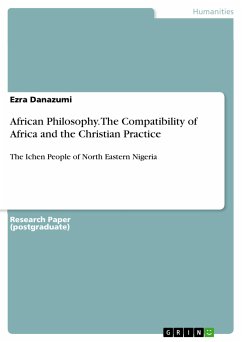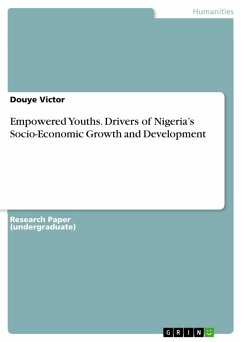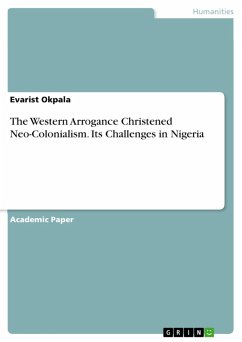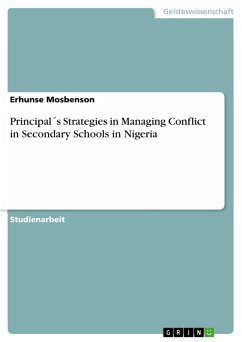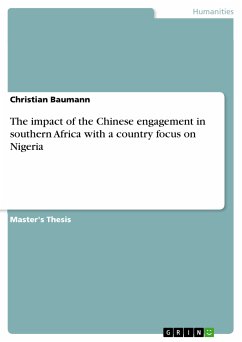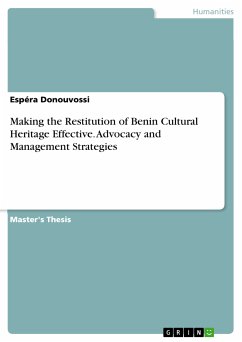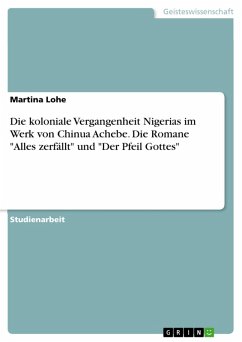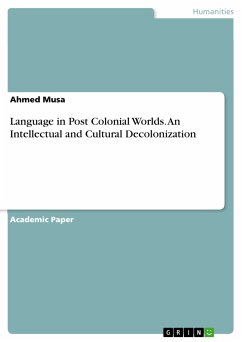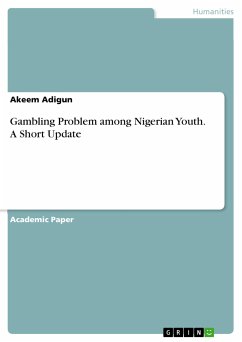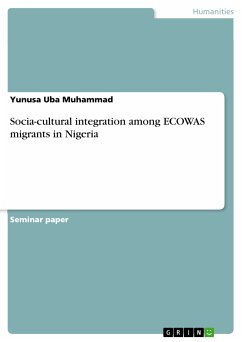
Socia-cultural integration among ECOWAS migrants in Nigeria (eBook, PDF)

PAYBACK Punkte
0 °P sammeln!
Seminar paper from the year 2020 in the subject African Studies - Miscellaneous, , course: Curriculum Studies, language: English, abstract: Migration, which is the movement of people from one geographical location to another has remained at the centre of West African history for several centuries. Its centrality has been attributed to its role in influencing the socio-cultural and economic integration of the sub-region. A migrant can be described as a person who uproots himself from his original home and moves to a new place where he settles and establishes new links. This paper examines the s...
Seminar paper from the year 2020 in the subject African Studies - Miscellaneous, , course: Curriculum Studies, language: English, abstract: Migration, which is the movement of people from one geographical location to another has remained at the centre of West African history for several centuries. Its centrality has been attributed to its role in influencing the socio-cultural and economic integration of the sub-region. A migrant can be described as a person who uproots himself from his original home and moves to a new place where he settles and establishes new links. This paper examines the socio-cultural integration that occurs among ECOWAS migrants in Nigeria. In order to examine the extents to which migration promote socio-cultural integration and peaceful co-existence among ECOWAS nationals and Nigerian citizens; the paper began with conceptual clarifications of the key terms of migration, migrants, integration as well as socio-cultural integration were reasonably discussed. It then reviewed the Nigerian migration policy as it relate to ECOWAS protocol on free moment of persons. It specifically dwelt extensively on the impacts and consequences of socio-cultural integration of ECOWAS migrants in Nigeria. The socio-cultural integration variables discussed in the paper include local language, religion, intermarriage, friendships/social network, family organization structure or cultural values, traditional food and traditional mode of dressing, among other.
Dieser Download kann aus rechtlichen Gründen nur mit Rechnungsadresse in A, B, BG, CY, CZ, D, DK, EW, E, FIN, F, GR, HR, H, IRL, I, LT, L, LR, M, NL, PL, P, R, S, SLO, SK ausgeliefert werden.




